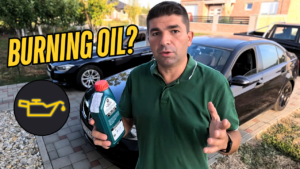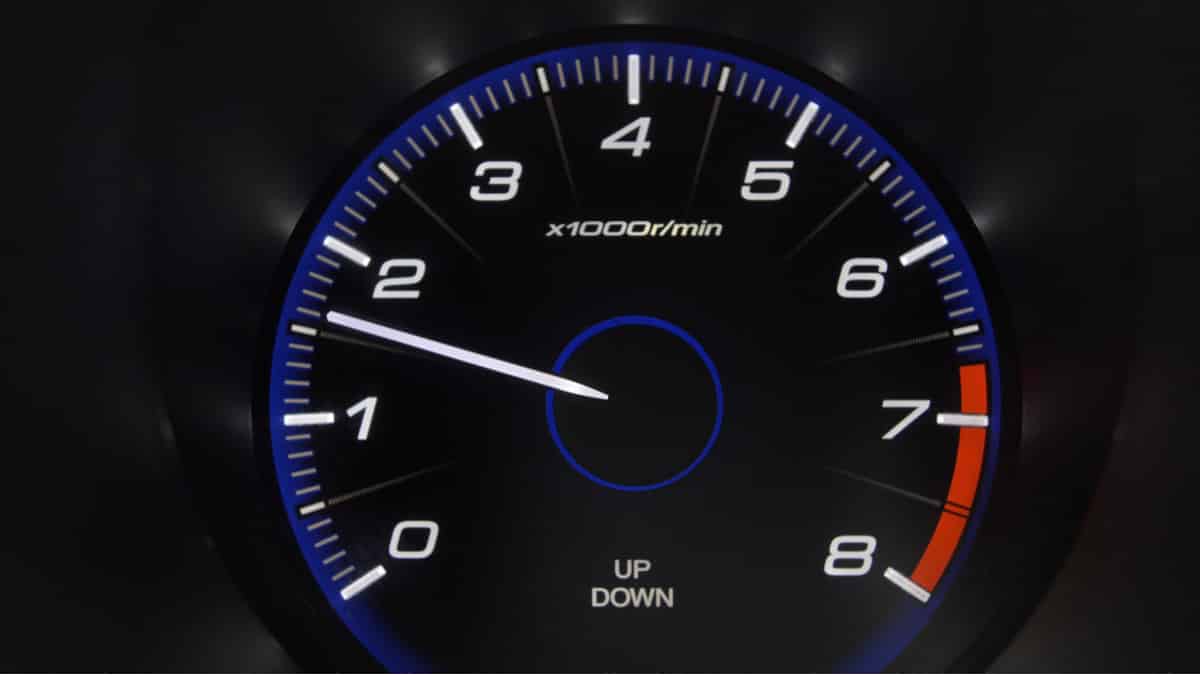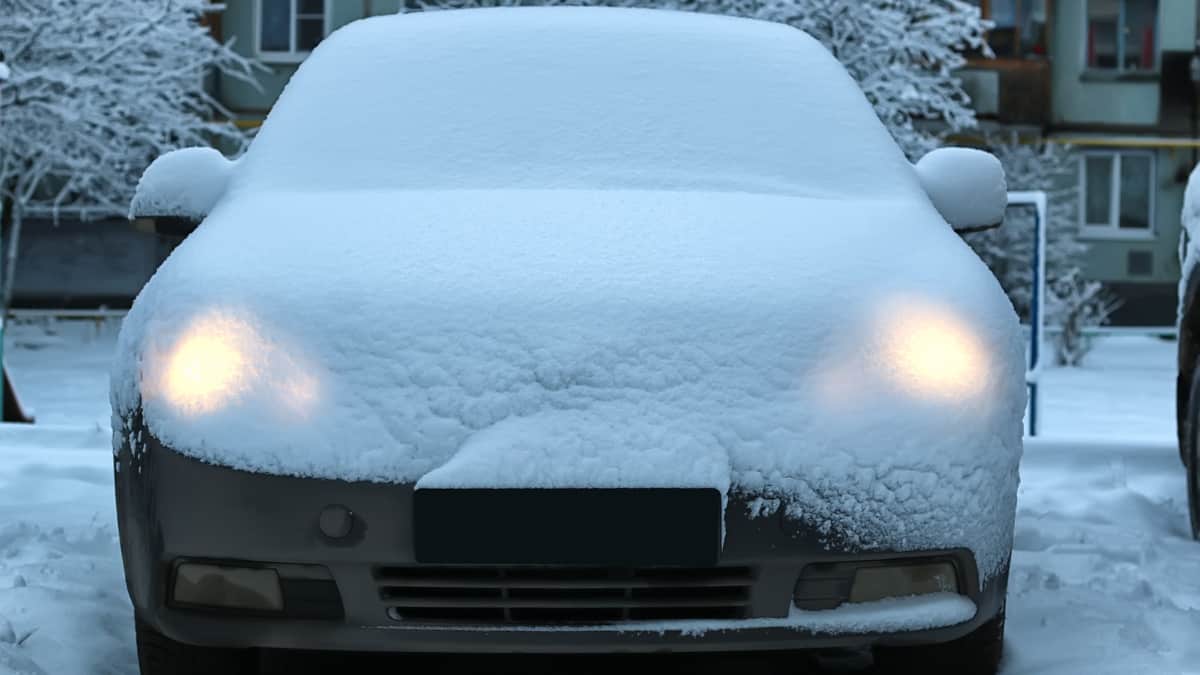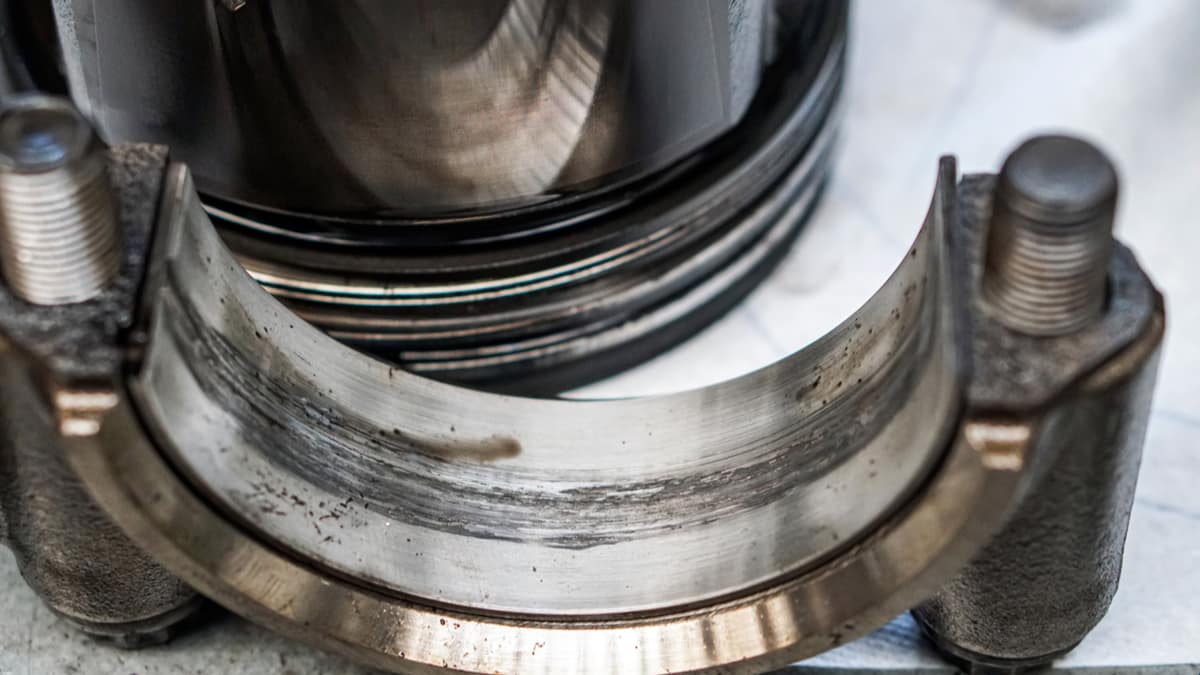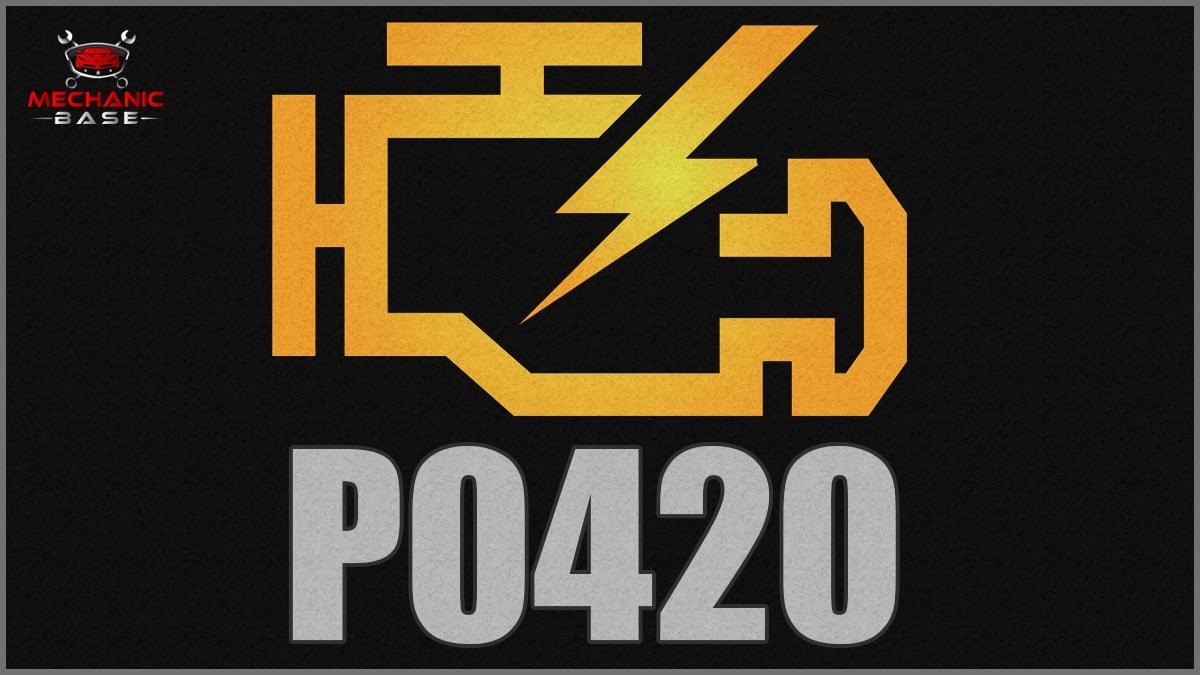There are some car smells that cause alarm. One of these is the smell of burning rubber. It’s never a good sign when rubber smells like it’s burning. Due to this, you want to know why the car smells like burning rubber.
In this guide, we look at the top causes and discuss how to fix the problem. We also answer your most-asked questions about the burning rubber smell.
Reasons A Car Smells Like Burning Rubber
If you smell burning rubber, there could be an engine oil leak or a radiator coolant leak. It could also be caused by a slipping serpentine belt, sticking brakes or a worn clutch with a manual transmission. Consider that it’s also an electrical short, a stuck object in the engine bay or a worn catalytic converter.
Let’s evaluate some of these possibilities closer.
1. Engine Oil Leak
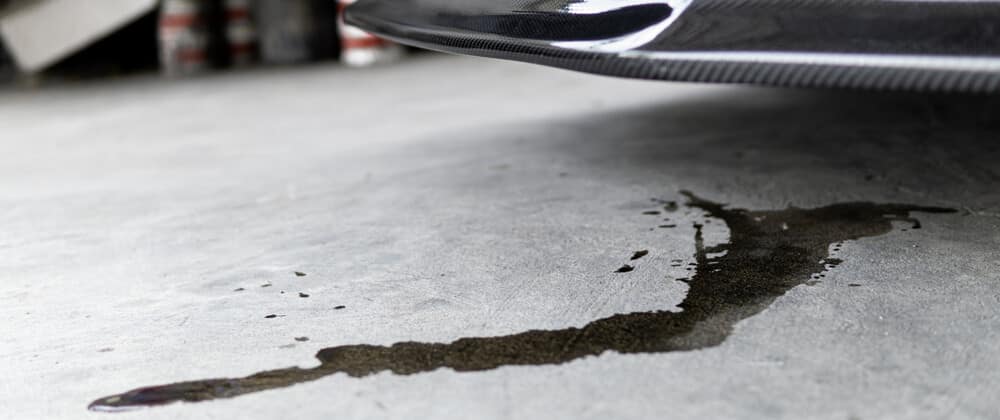
You may not think that engine oil can give off a burning rubber smell, but it does. If leaking oil comes in contact with hot components under the hood, it starts to burn.
The leaking oil may be coming from the drain plug, valve cover, seals, oil filter or oil pan gasket. Either way, you need to have it fixed as soon as possible because the motor may not get the lubrication it needs or it could overheat. With either of these problems, permanent engine damage can occur, leading to much more expensive repair bills. Oil leaks hitting the exhaust can also lead to a car fire, which you don’t want to deal with.
2. Radiator Coolant Leak
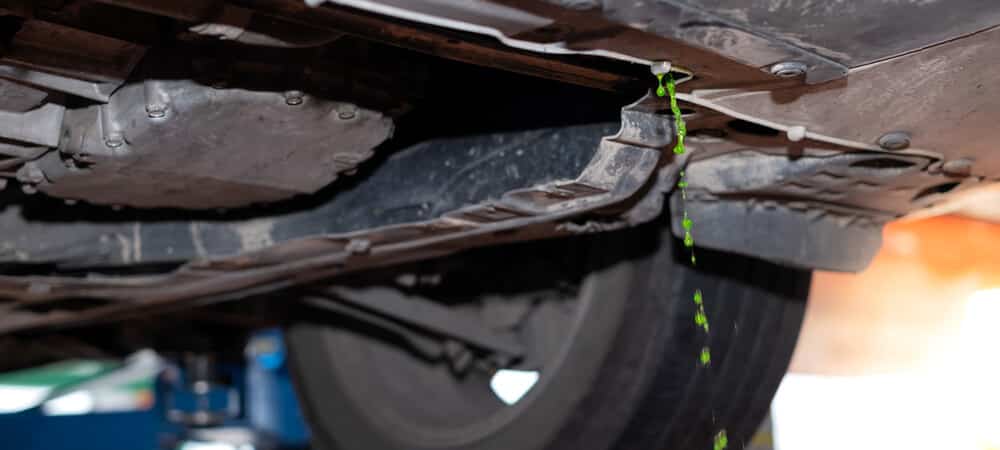
Coolant has a unique smell because of the ethylene glycol that’s included in the mixture. Straight from the bottle, coolant gives off a sweet smell, similar to maple syrup. That’s why it’s so dangerous to have around children and pets.
Yet, when there’s a coolant leak and the fluid ends up on hot engine parts, the smell changes slightly. While there will still be a sweet smell attached to it, this odor combines with a burning rubber-type scent. It’s critical to address a coolant leak immediately to ensure the engine doesn’t overheat.
3. Slipping Serpentine Belt

The serpentine belt, otherwise known as the drive belt, is responsible for transferring power from the motor to several critical components. There’s also a timing belt that needs to synchronize the camshaft and crankshaft rotation.
Either way, if a belt is misaligned, damaged or loose, it could start to slip. The result is more friction and a strong burning odor. Additionally, the nearby hoses could rub against the belt if it is slipping, leading to an even stronger rubber odor.
4. Sticking Brakes
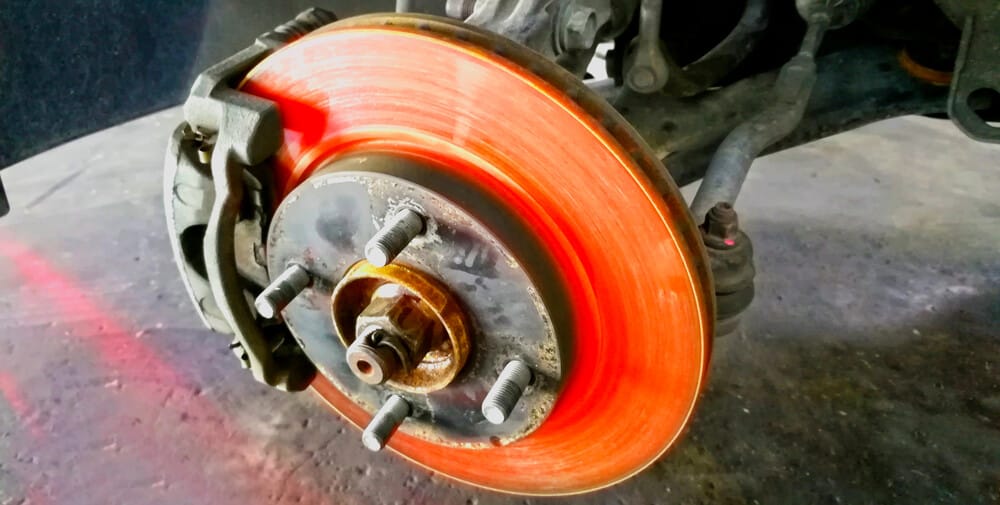
If the brake caliper seizes up, it won’t release its hold on the brake pads, which are pushing against the rotor. As a result, the caliper starts to heat up and cause a burning smell. Furthermore, the intense heat could lead to smoke from the wheel. At worst, it could also create sparks, which could turn into a fire. Most often, a stuck caliper will lead to pulling on one side, so you’ll be able to identify the situation easily.
There’s also the chance that you’ve just been overusing the brakes, which is leading to a burning smell. If brakes start to overheat from being ridden, the smell can be similar. You may also notice decreased braking performance during this time.
5. Clutch Slipping (Manual)
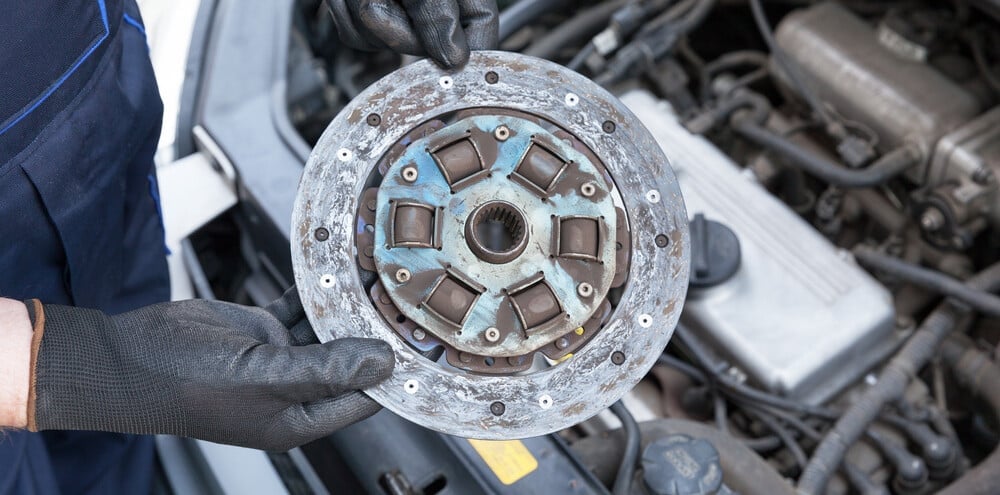
There’s also a burning smell normal when the clutch is worn out. This unique smell comes from the clutch surface, which is similar to a brake pad. As the clutch slips, the material starts to burn and you can see smoke coming from the engine bay.
You’ll know that the clutch is slipping because there will be a delay between gears. You may also notice a soft clutch pedal. Slippage can be caused by using the clutch too frequently, not fully releasing it between gears or hauling a heavy load beyond what your vehicle is capable of. It also occurs when there’s a mechanical malfunction.
6. Electrical Short
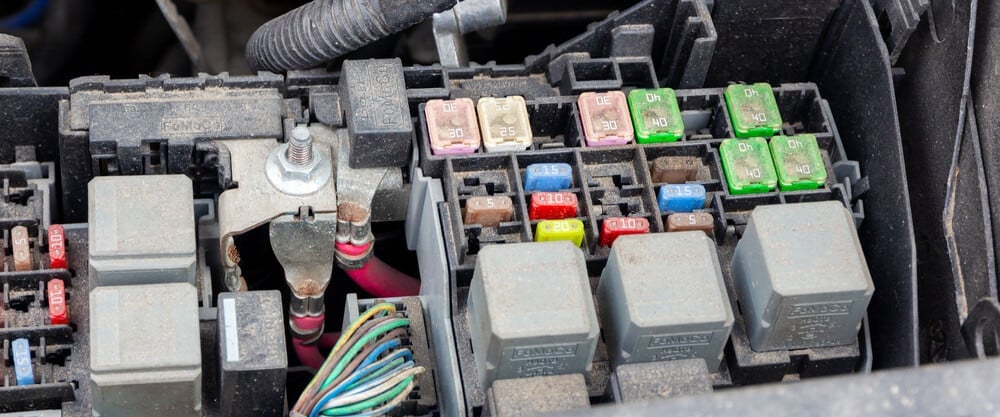
With more than 5,000 feet of electrical wiring in today’s automobiles, there’s a lot to go wrong. One short or disconnection can lead to a massive burning smell. It can also cause a car fire, so it’s not something to overlook.
The biggest issue with electrical shorts is finding them. Unless you can determine what system it’s affecting, you could be on a wild goose chase for several days, following all of the wires until the damage is found. That’s why electrical system issues can be some of the most expensive to repair.
7. Stuck External Objects In Engine Bay
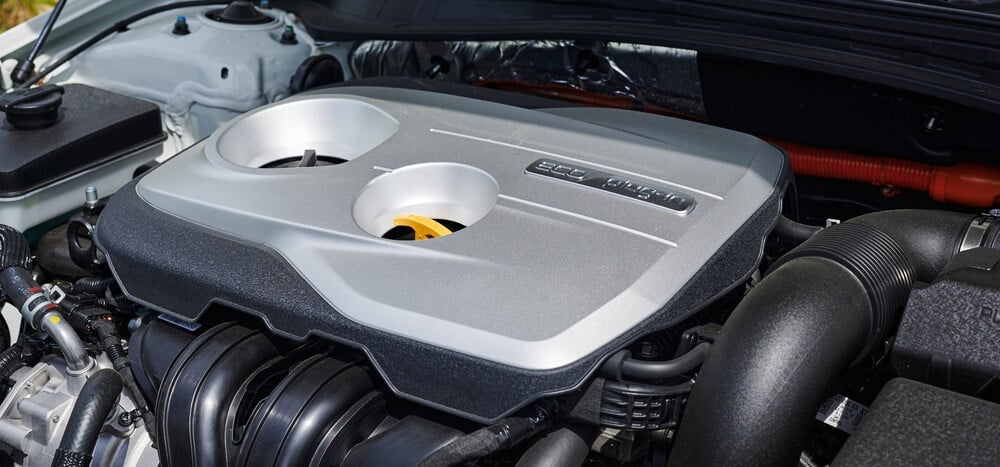
The engine bay is the place below the hood that houses the motor and other vital components, such as the alternator, battery, transmission, power steering pump and more. If there’s a burning smell coming from under the hood, there could be something in the engine bay that doesn’t belong. After all, these components get extremely hot while the engine is running.
Maybe you were working under the hood and you left a tool behind. If there’s plastic or rubber on it, that part could be burning. It’s also possible that an overheating or damaged power steering pump, alternator or other component could be the issue.
8. Worn Catalytic Converter
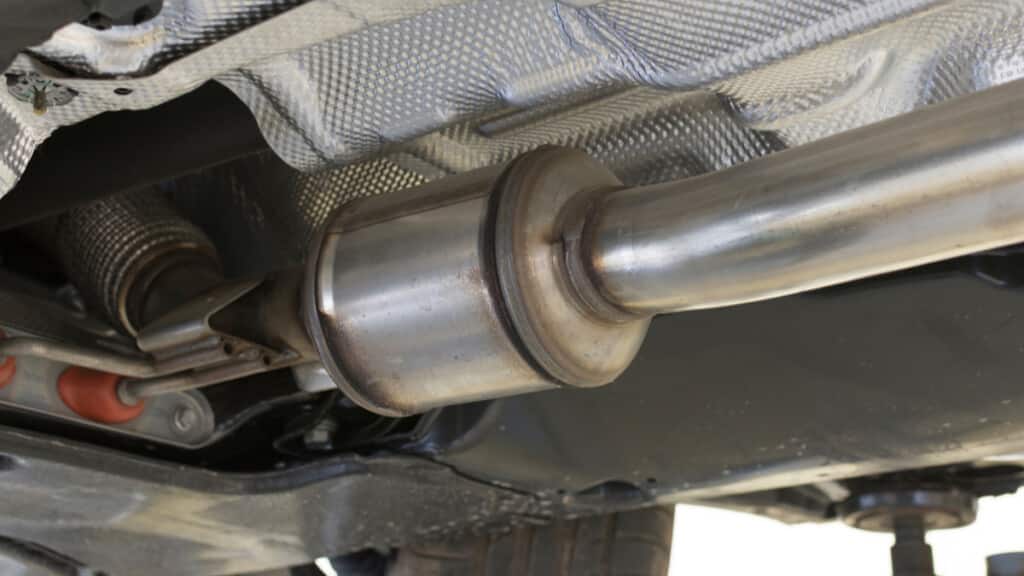
The catalytic converter is an essential part of the car’s emissions system. When it starts to fail, it gives off a rotten egg smell that can sometimes be mistaken for burning rubber. That smell is coming from the hydrogen sulfide coming from the catalytic converter.
Additionally, you could smell something rubbery if debris got caught on the catalytic converter. Because the exhaust gets very hot, it can scorch anything that comes in contact with it.
How To Diagnose A Burning Rubber Smell
You don’t have to be a professional mechanic to figure out what’s going on with your car. In many cases, you just need to take a closer look. Let’s evaluate some ways to get to the heart of the matter.
1. Perform A Visual Inspection
Your first step is to make sure nothing is lodged in the engine bay. Pop the hood and take a close look around. If you see something out of place, remove it carefully. If you’ve just been driving, anything under the hood could be extremely hot, so use caution.
You can also peek under the car to see if anything got stuck on the exhaust. Once again, this system will be very hot, so it’s best to wait to touch any debris you find.
Your next step is to check the belts. If there’s a belt slipping or loose, it’s time to replace it.
2. Look For Leaks
It’s not difficult to find leaking oil or coolant. If you are concerned about leaking fluids, put a piece of cardboard under the vehicle overnight. When you come back in the morning, you may see a puddle on the cardboard.
If it’s brown or black, it’s probably motor oil. Coolant can be a variety of colors, from green to blue and any other option in the rainbow. However, you’ll know it’s coolant based on the sweet smell it has. Once you find the leak, you must repair it. It’s never wise to continue driving with the vehicle leaking fluids.
3. Consult Service Manual
For any other issues, you may need a little more mechanical expertise. Checking for stuck calipers isn’t much harder than changing brakes, but you may have difficulty finding an electrical short. You can consult the factory service manual to get some advice and step-by-step guidance for your particular vehicle.
Otherwise, you may feel more comfortable consulting a professional mechanic at this point. It’s not safe to continue driving with a burning smell coming from the car. Don’t take the problem lightly or you could find yourself on the side of the road watching your vehicle start on fire.
Should I drive my car if it smells like burning rubber?
Absolutely not. There could be something critically wrong that could start a fire. You should pull over in a safe location and try to find the source of the burning smell before driving any further. If there’s something stuck in the engine bay or a logical explanation, you may be able to get back on the road safely.
Why does my car smell like burning rubber but not overheating?
It’s possible that there’s something simply lodged in the engine bay that doesn’t belong. Additionally, the smell could be coming from stuck calipers, a slipping belt or a failing catalytic converter. These problems wouldn’t cause the engine to overheat, but they are just as dangerous, so you should stop driving and take a look.
Can a bad alternator cause a burning smell?
It’s possible for any damaged car part to create a burning smell. If the alternator fails, you may smell burning, especially if there’s an electrical problem with the component. It’s important to take a look at what’s going on before driving any further because you don’t want a car fire to break out.
Can low oil cause a burning smell?
Yes, if there’s an oil leak and the fluid is hitting a hot component, you may smell something burning. There are a lot of hot parts located under the hood and as part of the exhaust. Even small drips of oil on these hot parts can create a terrible odor. The leak also puts you at risk for a car fire, so fix it right away.
Does burning coolant smell like rubber?
Coolant has a sweet smell that makes it unique from other car fluids. If the coolant is leaking and it hits hot components under the hood or throughout the exhaust, it could create a unique burning smell that resembles rubber. If you smell burning rubber while driving, it’s best to pull over and take a look to see what’s going on.
If the car smells like burning rubber while you are driving, this isn’t a problem you want to ignore. There’s something seriously wrong that demands your attention. Maybe it’s as simple as debris getting stuck under the hood, which would be easy to resolve. That’s the best-case scenario. Otherwise, you could be looking at something much more severe.
For example, if you have an oil or coolant leak, you are leaving the engine unprotected. Not only that, but the fluids leaking onto hot components can cause a car fire. It’s important to fix whatever’s creating the burning smell before disastrous consequences occur. If you aren’t sure what to do, reach out to a local mechanic.
Categories: Driving, Troubleshooting


